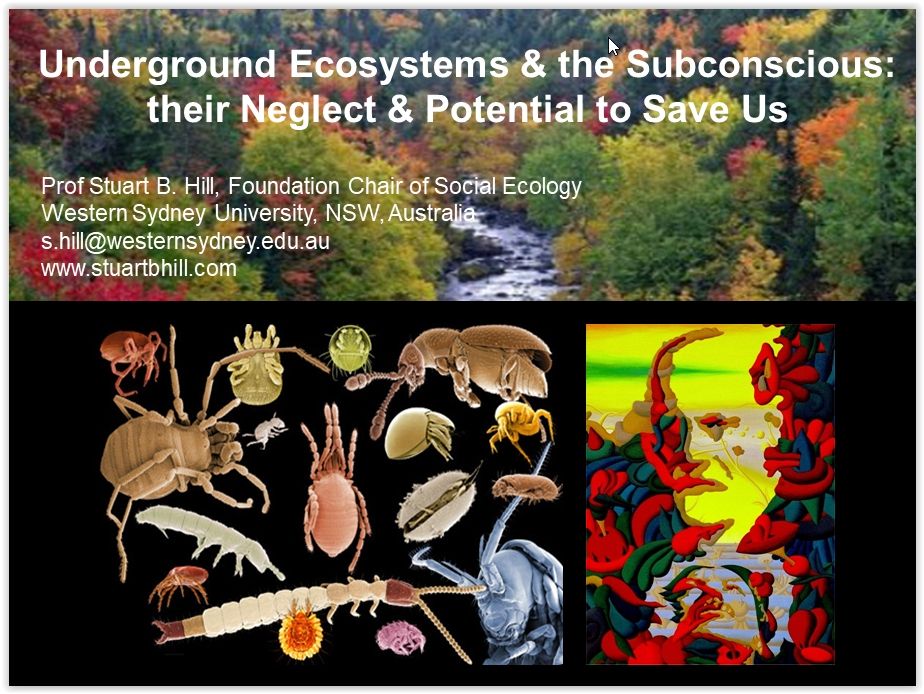Click to download Powerpoint presentation (24.3mb)
Underground Ecosystems and the Subconscious:
Their Neglect and Potential to Save Us
(presented in honour of leading soil scientist and humanitarian Professor Fred Bentley at the University of Alberta, Canada; 18 October 2007. Fred and his extended family attended the lecture; he died on 12 April 2008, aged 94)
http://www.rr.ualberta.ca/en/SeminarsandLectures/BentleyLecture/StuartHill.aspx
Too often it is ‘the bits that we don’t see’, and are unaware of, that enable most systems to function. Yet society tends to focus just on the most attractive visible bits, neglects the rest, and is frequently surprised by the increasingly common expressions of system breakdown. This may be recognized at every level, from the individual to the biosphere, and from the local to the global. Examples of soil within terrestrial ecosystems and the subconscious within the human mind, and the complex interrelationships between them, are used here to illustrate this. Because such neglected resources (in fact, most of what is!) offer enormous opportunities for improved use, the future may be much more hopeful than is generally imagined. This potential may only be realized, however, through a radical paradigm shift in our thinking – indeed, only by taking the next step in our psychosocial evolution as a species: from an economics-obsessed, socializing (manipulative, controlling) culture to a higher values-based, life-enabling one. The late Australian farmer P.A. Yeomans’ ability to ‘create an inch of topsoil in three years’ is used here to illustrate the potential of such a change. Benefits may include genuinely sustainable managed ecosystems, conservation of biodiversity and maintenance of ecosystem services, wellbeing and meaning, non-violence and peace, and climate amelioration. The challenge facing us all at this time is how to best enable such a cultural transformation: from the ‘letting go’ of the fateful familiar, to the ‘letting come’ of the emerging new unfamiliar and often paradoxical ways of understanding and acting. This presentation covers the theory and practice of such a cultural transformation, with special reference to soil and psyche. It focuses on the processes involved in change, from the personal (psychology), to the environmental (ecology), to the socio-political (human, social and cultural ecology); and on small, meaningful initiatives that each of us can take in our various areas of influence in support of such a cultural transformation.


